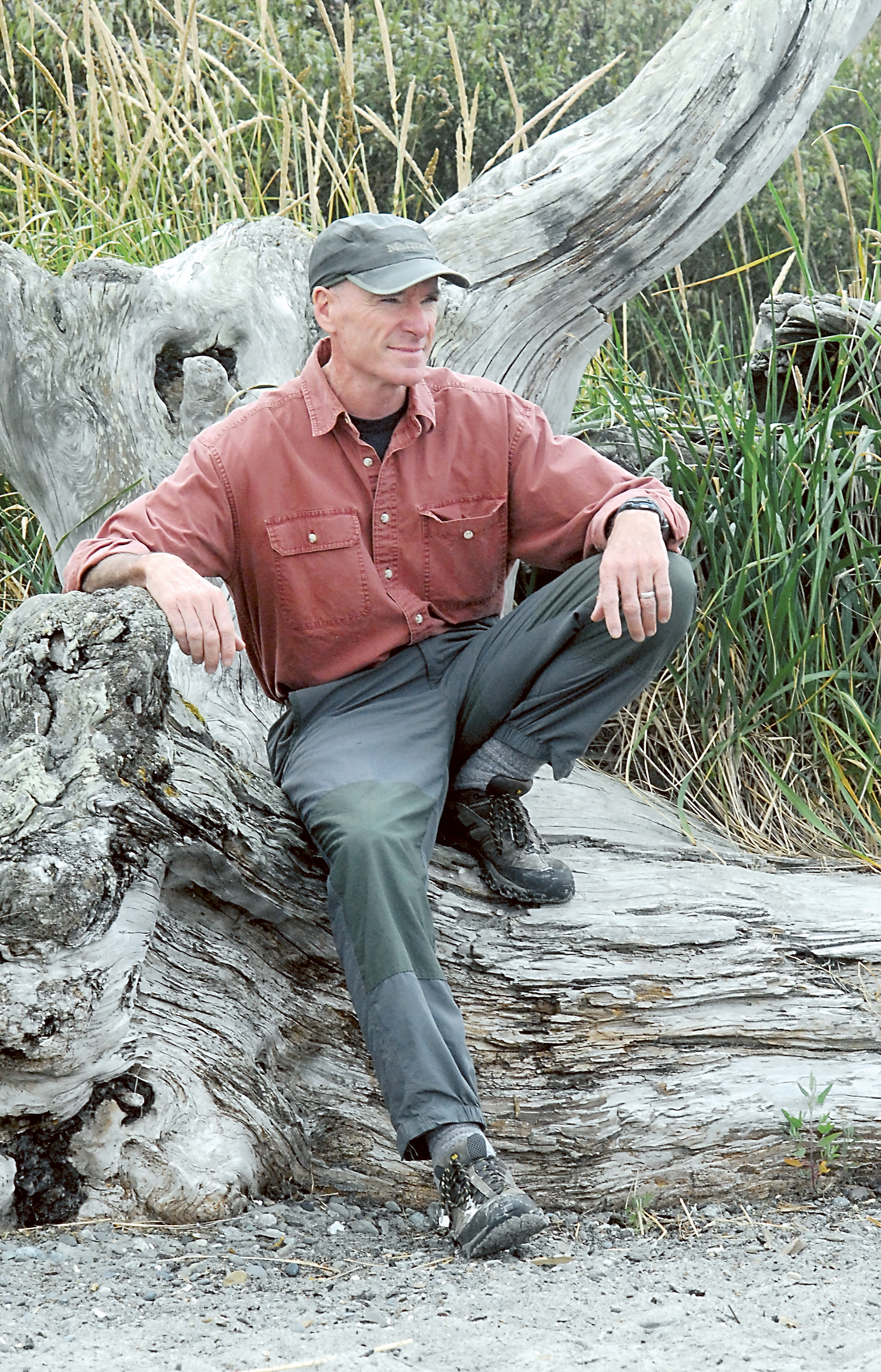PORT ANGELES — After rowing solo for a week on the North Atlantic Ocean, Chris Duff was elated to touch land in a tiny fishing village on the east coast of Iceland.
The Port Angeles adventurer traveled 300 miles in a 19-foot boat from Scotland’s Faroe Islands to Breidalsvik, Iceland, in seven days and seven nights.
Duff was overcome with emotion when he emerged from heavy clouds and rain May 31 to see a group of his friends waiting for him on shore.
“It was a mix of great relief to be in sheltered water and elated that after three attempts, there’s Iceland,” Duff said.
“And then to literally row into the comfort and the embrace of my friends was just wonderful.”
Duff, 56, tried to row from Scotland to Iceland in 2011 and 2012 before calling off those attempts because of northerly winds.
“Everything is dependent on the winds,” Duff said Friday.
He traveled hundreds of miles from mainland Scotland and the Outer Hebrides past Orkney, Shetland and Faroe islands in his previous bids, meeting some lifelong friends along the way.
Last month, Duff caught the break he needed.
Consistent easterly and southeasterly winds helped push the orange Northern Reach across the North Atlantic to the east coast of Iceland.
But Duff wasn’t finished.
Two days after he landed in Breidalsvik, Duff rowed another 200 miles around the rugged south coast of the volcanic island nation over five days.
Duff built an impressive resume as a sea kayaker before turning his attention to open-ocean rowing on his modified fiberglass boat.
The former deep-sea Navy diver kayaked 8,000 miles along the east coast of the U.S. and Canada in 1984.
Duff circumnavigated Great Britain in 1986 and Iceland in 1996, and rounded New Zealand’s South Island in 2000.
“Those were all solos,” he said.
In 2003, Duff was part of a team that circumnavigated Iceland.
“We had an extremely close call on that south coast,” Duff recalled.
“There’s shipwrecks all over the place.”
While long-distance kayaking has its own set of challenges, there’s something unique about solo travel on the open ocean, he said.
“It’s seven days of physical exposure, mental exposure and psychological exposure,” Duff said.
“You’re in a boat that’s 36 inches wide, 19 feet long. And although the boat did very well — it’s a very seaworthy boat — you’ve very vulnerable.”
Before he left the Faroes on May 25, Duff beefed up the hull of the Northern Reach with extra layers of fiberglass.
Although the weather was favorable for much of the crossing, the reinforcement gave Duff peace of mind one night when 6- to 8-foot waves pounded the small craft.
“Just knowing that I had those extra layers of glass gave me some confidence that the boat wasn’t going to break up,” he said.
Although Duff traveled with an emergency beacon, help may be 12 hours away when you’re 150 miles from shore.
“The biggest thing is being able to handle an emergency and work through it alone while you’re cold, while you’re hungry, while you’re seasick,” Duff said.
“You are the only one on board that can get you out of that situation that is threatening your life or potentially threatening your safety.”
Meals consisted of candy bars, energy bars and add-water dehydrated fare during the crossing. Duff used a small stove to boil his water, being careful not to scald his rowing hands.
When the weather was good, Duff would nap for as long as three hours. A GPS device kept him from drifting off course.
Duff added a small sail to the Northern Reach in 2012.
Although the sail makes it easier to row, the vessel’s top speed remained 5½ to 6 knots.
Duff described the open ocean as “cold” and “careless.”
“You have to treat it with the utmost respect,” he said.
Despite his moments of fear, Duff said “there was never any panic” on his recent crossing.
“There is the knowing of how dangerous things are, but there is also, to balance that, the sharp focus of what my job is,” he said.
“In society, there are so many things pulling us in different directions, and out on the sea, it’s a very black-and-white world.
“The job is very, very clearly defined.”
Duff wrote several books about his previous travels and is now working on a book about his adventures on the Northern Reach.
He offers a compelling account of his recent crossing, along with photos and video, on his Facebook page, which can be accessed through his blog at www.olypen.com/cduff.
Duff said he did not collect donations for his most recent trip.
Now that he’s back in Port Angeles, Duff is “back to work” as a carpenter, looking for kitchens and bathrooms to remodel on the North Olympic Peninsula.
Next summer, Duff and his wife, Lisa Markli, hope to bicycle around the Scottish islands that Duff has explored in his boat.
Eventually, Duff would like to row the Northern Reach from Scotland to Canada, stopping off in Iceland and Greenland.
“I’m not done,” he said.
“The boat is still over there.”
________
Reporter Rob Ollikainen can be reached at 360-452-2345, ext. 5072, or at rollikainen@peninsuladailynews.com.

